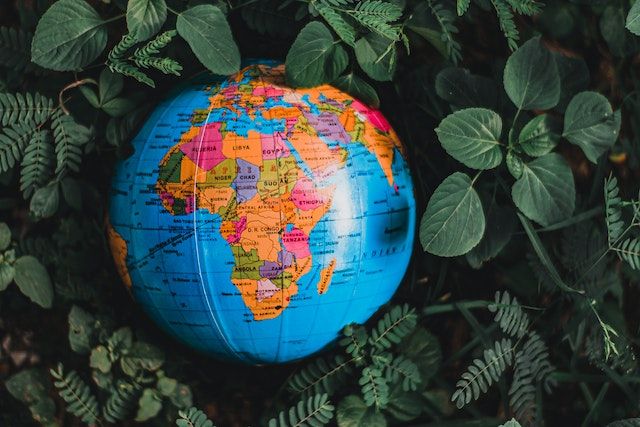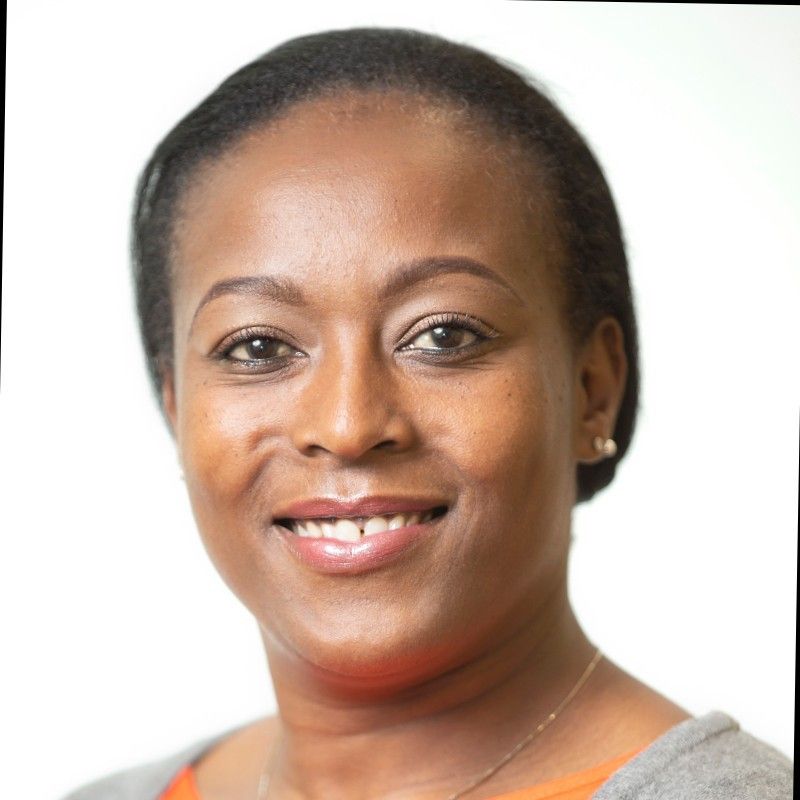
Over the last two decades or so, Africa has steadily shed its tag as the Dark Continent. The somewhat derogatory nickname has been used in reference to the perceived economic backwardness of the continent and other problems such as perennial hunger, diseases, illiteracy, and political instability. In its place, more positive perceptions are taking root owing to the realisation of the many opportunities that Africa presents to human development in terms of agriculture, natural resources, sustainable energy, labour and so on.
To highlight just a few of the reasons that make Africa the future of economic development, the continent has the world’s largest reserves of cobalt, chromium, diamonds, platinum and uranium. It also holds 65 per cent of the world's arable land and 10 per cent of the planet's internal renewable freshwater sources as reported by the UNEP. Furthermore, Africa has 40 per cent of the world’s biodiversity and 60 per cent of its uncultivated arable land. Africans have also stepped up to tell their story of hope and progress amid all the fears and negativity of the past.
Improved governance and better economic policies have seen the continent host some of the fastest-growing economies in the world. As of 2019, the IMF reported that six of the 10 fastest-growing economies globally were in Africa with the region’s GDP growing by five per cent, almost double the global average of 2.6 per cent. It is no surprise then that multinationals are setting up bases in Africa allowing the continent to play an integral role in global economic development and globalisation. Without a doubt, the past few years saw a downturn in the continent’s development; but Africa is still growing. The Economist Intelligence Unit highlights a 3.2 per cent growth for Africa in 2023.
Even more appealing is the fact that Africa has thousands of ethnic groups that allow not only a diversity in culture but also a diversity in world views and problem-solving. The continent’s population dynamics are also favourable with 35 per cent of Africa’s population comprising youth.
FDI inflows into the continent have also been growing exponentially but remain relatively small at only 2.5 per cent of global FDIs according to the World Bank. As such, the key challenges of diseases, hunger, drought and climate change have prevailed.
But Africa cannot and must not rely on FDI alone. The continent must prioritise its own resources (human, natural, financial) for its own growth. Responsible and ethical governmental leadership is key for this – from debt management to local manufacturing and mobilising all its people equitably towards prosperity and growth.
To address these challenges and accelerate engagement for the continent’s development, multi-stakeholder forums will be vital for partnership and collaboration towards a common goal – the Africa that Africans want. The African Union’s Agenda 2063 defines that as ‘An integrated, prosperous and peaceful Africa, driven by its own citizens, representing a dynamic force in the international arena.’
Forums to accelerate change
One of the most recent conclaves that brings different stakeholders from around the world is the Africa Shared Values Leadership forum. The forum held the 6th annual Africa Shared Value Leadership summit in Kigali, Rwanda in late 2022. The summit addressed both the future of connectivity and how combining it with the Shared Value mindset can enable economic growth and people-centric sustainability.
The Shared Value Africa Initiative is a business concept that calls upon the private sector to effectively leverage its resources to simultaneously improve societal and business needs with the goal of creating a sustainable business environment. Ideally, the private sector can employ its immense resources to complement the efforts of the governments and civil society to address societal issues and challenges that can include improved healthcare, environmental conservation and job opportunities.
The first day of the summit covered the topics of creating shared value, digital inclusion and climate justice. All these aspects have proved relevant to Africa’s development agenda and have been addressed in other forms such as the SDGs.
In the past, Africa has relied on aid and donations from the West to shape its development agenda. ASVL summit commits the private sector to adapt new methods of innovation and corporate responsibility by addressing pressing social and environmental problems in society and simultaneously generating returns for their investors. To drive this agenda home, African businesses must view the challenges facing Africa as new opportunities for doing business and innovating sustainable solutions.
Another key platform to watch will be the Global Compact’s Uniting Business for Africa initiative that brings together African and global business leaders, civil society, government and UN agencies to spur sustainable development activities for the continent. The initiative focuses on driving Global Compact’s Africa Strategy with small and large businesses to uphold principles in human rights, labour, environment and anti-corruption.
Africa’s digital age
One way of addressing Africa’s challenges is by enhancing the digital infrastructure in Africa. Private technology companies need to provide sustainable solutions to poor digital connectivity in the region whose weaknesses were exposed by the COVID-19 pandemic. To put into context, while many western counties continued with education away from schools following COVID-19 restrictions, Africans could hardly cope with online learning due to poor internet connection.
As a demonstration of how well digital infrastructure and technology can be employed to create positive social impact and also benefit privates firms, one entrepreneur participating in the AVSL summit explained how AgriLift in partnership with the US Agency for International Development (USAID), through its private sector driven agricultural growth project (PSDAG) has employed smartphones and drones to aid sweet potato farmers in Rwanda and Burundi in adapting advanced potato farming methods. It has also helped in training the farmers on value addition for their products and preservation. It was also revealed that in a study in Ghana, 3G technology contributes to 15 per cent growth in the GDP.
Another good example from one of the entrepreneurs discussed how GPS technology has been used in tracking and fighting locust invasions in Mali and other countries neighbouring the Sahara Desert. Such technologies create value for farmers and also drive private firms to innovate and employ technology to address perennial problems in Africa.
Another example is Ho Hub in Ghana. The hub seeks to enhance financial and digital literacy among the youth in the community as a means of upscaling their capacity to develop skills and innovations to address local issues.
Global technology giants, Google and Microsoft are also investing in fast-tracking Africa’s digital transformation. In September 2022, Microsoft announced a new partnership with the African development bank to scale up technical and financial support for youth entrepreneurs and build their capacity. The program focuses on equipping youths with career pathways, leveraging Microsoft connectivity solutions, providing SME digital literacy and business skills as well as providing Microsoft’s SMEs business solutions at a discounted price.
Similarly, and almost at the same time, Google announced a commitment to invest $1 billion in African young entrepreneurs over the next five years to support a range of initiatives, from improved connectivity to investment in startups, to help boost Africa’s digital transformation.
In support of this digital revolution in the African continent, firms providing digital infrastructure have played their part. For example, MTN, Vodacom and Safaricom have increased their 3G and 4G coverage. Most recently, a Safaricom-led consortium ventured into the Ethiopian market and has promised to cover 24 major cities by April 2024.
African countries and businesses have the opportunity to learn from each other, and leverage each other’s good practices to drive positive impact on a larger scale – across, towns, cities and countries. Taking this approach, Africa will accelerate and hasten its development path. Leveraging digital platforms and technology will help address the challenges of the continent (poverty, access to education, health, resilient agriculture and others), and provide work, entrepreneurship and livelihood opportunities as new businesses will emerge.
Forging a sustainable future
It must also be noted that while Africa is eager to accelerate its development, it must not compromise on its social and environmental well-being. The SDGs provide a framework that prioritises social and environmental issues as the foundation for a sustainable future. Society and the environment are interdependent – development cannot succeed without properly managing these interdependencies. There is an urgent need for a paradigm shift in African entrepreneurship and ways of doing business which puts people/society at the centre and creates value for stakeholders – people, planet and shareholders/investors.
Creating awareness and onboarding both private and government organisations towards responsible and sustainable business thinking and practice will accelerate Africa’s SDGs progress and address the continent’s perennial challenges. This way, Africa can protect her present, and secure her future.





